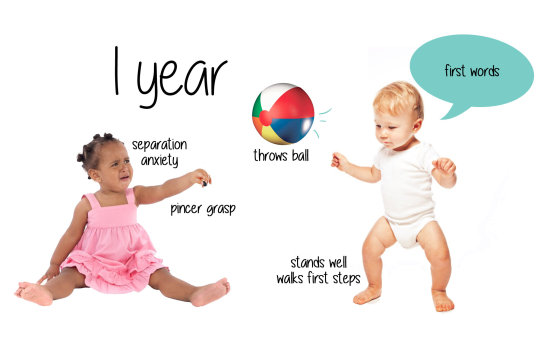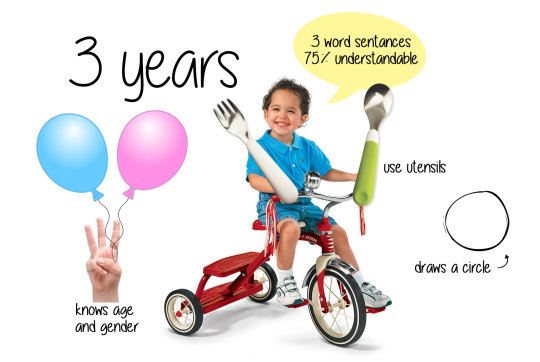#child development milestones
Explore tagged Tumblr posts
Text
Key Milestones in Child Development: What to Expect from Birth to Age Five
#baby milestones guide#Child development milestones#early childhood development#key milestones from birth to five#parenting tips for child development#physical and cognitive milestones#preschool development stages#signs of developmental delays#social and emotional development in children#toddler development
0 notes
Text
Boosting Pre-Primary Education Success with Parental Power

Are you a parent of kids who is worried about their pre-primary education practices? The early years are a critical window for a child's development, and the role of parents is paramount. The foundation of a child's educational success is laid long before they step into a formal classroom.
Pre-primary education plays a vital role in nurturing this growth, but it's important to remember that a child's first and most influential teacher is often their parent. Empowering parents for effective pre-primary education practices is not just beneficial; it is essential. It also helps in creating a good bond between the child and parents.
In the blog, you will learn more about empowering parents for effective pre-primary education practices in detail.
Why Empowering Parents Matters
Many parents may experience uncertainty regarding their child's pre-primary education. They may wonder how to best support their child's learning at home or how to bridge the gap between what happens in the classroom and their daily routines. Parents are concerned about their kid’s education at home. They think about how they can help educate their kids in the best way at home. Empowering parents for effective pre-primary education practices deals with these concerns by:
1. Building Confidence
When parents gain a comprehensive understanding of child development milestones and effective learning strategies, they become more confident in their capacity to support and foster their child's growth. This knowledge gives them the confidence to create enriching learning environments and engage in activities that promote their child's cognitive, emotional, and social development.
As a result, they can play a more active and informed role in their child's early education, positively impacting their overall development and readiness for future educational challenges.
2. Enhancing Collaboration
When parents feel empowered with the right knowledge and resources, they are better equipped to communicate and collaborate effectively with teachers. This empowerment enables them to actively participate in discussions about their child's progress, share insights about their child's needs, and support the educational strategies implemented by teachers.
3. Extending Learning Beyond the Classroom
Through an understanding of the curriculum and learning activities implemented at school, parents can effectively tailor their efforts at home to create engaging and complementary experiences that reinforce their child's educational journey.
4. Fostering a Love for Learning
When parents show excitement and eagerness to learn new things, their positive energy and enthusiasm become infectious, inspiring those around them, including their children, to also assume a love for learning and exploration.
Strategies for Empowering Parents
1. Education and Awareness
Workshops and Seminars
Organizing workshops and seminars on child development and early education can provide parents with valuable insights. Topics such as the importance of play, language development, and positive discipline can be covered.
Online Resources
Creating a repository of online resources, including articles, videos, and interactive modules, can help parents access information at their convenience.
2. Practical Guidance
Activity Guides
Providing parents with guides on age-appropriate activities can help them engage their children in meaningful ways. These guides can include simple games, reading lists, and craft ideas that promote learning.
Routine Building
Assisting parents in establishing daily routines that incorporate learning activities can ensure consistency and structure, which are vital for young children.
3. Community Building
Parent Support Groups
Facilitating parent support groups where experiences and ideas can be shared fosters a sense of community. These groups can meet in person or online, providing a platform for mutual support.
School-Parent Partnerships
Strengthening the partnership between schools and parents can lead to more cohesive educational experiences. Schools can organize regular meetings and involve parents in the decision-making process regarding their child's education.
Addressing Common Challenges
Despite the best intentions, parents often face challenges in implementing effective pre-primary education practices. These challenges can include time constraints, lack of resources, and limited understanding of child development principles.
Empowering parents for effective pre-primary education practices means acknowledging these challenges and providing practical solutions.
Time Management
Offering tips on time management can help parents balance their responsibilities while dedicating time to their child's education. This could include integrating learning activities into daily routines and setting realistic goals.
Access to Resources
Collaborating with community organizations and libraries to provide parents with access to books, educational materials, and toys can bridge resource gaps. Additionally, creating online platforms where parents can share and exchange resources can be beneficial.
Continuous Learning
Encouraging parents to continuously educate themselves about child development through books, courses, and online content can keep them informed and motivated.
The Final Note
Empowering parents with effective pre-primary education practices is an essential step in ensuring that children receive the best start in their educational journey. By providing parents with the knowledge, resources, and support they need, we can help them build the confidence required to foster their child's development at home. This empowerment not only enhances the learning experience for children but also strengthens the bond between parents and their children.
Through education and awareness, practical guidance, and community building, we can address the common challenges parents face and offer practical solutions. In the end, investing in empowering parents for effective pre-primary education practices is a crucial aspect of early childhood education. It lays a solid foundation for children's overall development and prepares them for the challenges ahead. As we continue to support and empower parents, we pave the way for a brighter and more successful future for our children.
#Pre-primary education success#Parental involvement in early education#Empowering parents for education#Child development milestones#Early childhood education strategies#Parent-teacher collaboration#Home learning activities#Building parental confidence#Enhancing child development#Educational workshops for parents#Effective learning environments#Bridging classroom and home learning#Supporting child’s cognitive development#Community resources for parents#Time management for parents#littleginnie#best preschool in south delhi
0 notes
Text
Which Child Development Milestones Matter Most
Child development milestones are an important aspect of a child's growth and can have a significant impact on their future development. As a parent or caregiver, it's essential to understand which milestones are most critical to ensure that children are on the right track. In this blog post, we will discuss the most important child development milestones and their relevance to daycare in Rolling Hills, CA.
1- Language Development:
Language development is one of the most crucial milestones in a child's development, as it forms the basis for communication and learning. At daycare in Rolling Hills, CA, children are exposed to a range of language-rich environments that help them develop their vocabulary, grammar, and communication skills. Teachers and caregivers often use songs, rhymes, and storytelling to help children develop their language skills and build their confidence in communicating with others.
2- Socialization:
Socialization is another important milestone in a child's development. At daycare in Rolling Hills, CA, children learn to interact with their peers, develop empathy, and learn how to share and take turns. Socialization is a critical aspect of child development as it helps children learn how to build relationships, resolve conflicts, and develop a sense of belonging.
3- Motor Development:
Motor development involves the development of fine and gross motor skills. At daycare in Rolling Hills, CA, children are provided with a range of activities that help them develop their motor skills. For example, children may engage in activities such as finger painting, drawing, and building blocks, which help them develop their fine motor skills. Similarly, activities like running, jumping, and climbing help children develop their gross motor skills.
4- Cognitive Development:
Cognitive development involves the development of thinking and problem-solving skills. At daycare in Rolling Hills, CA, children are provided with a range of activities that help them develop their cognitive skills. For example, puzzles, memory games, and storybooks help children develop their thinking skills, while activities like building blocks and shape sorting help children develop their problem-solving skills.
5-Emotional Development:
Emotional development involves the development of emotional regulation and empathy. At daycare in Rolling Hills, CA, children are provided with a nurturing and supportive environment that helps them develop their emotional skills. Teachers and caregivers help children understand and manage their emotions, and encourage them to show empathy towards others.
In conclusion, all child development milestones are important, and each milestone contributes to a child's overall growth and development. At daycare in Rolling Hills, CA, children are provided with a range of activities and experiences that help them develop their language, socialization, motor, cognitive, and emotional skills. As a result, children are better prepared to face the challenges of the future and lead happy and successful lives.
#child development milestones#daycare rolling hills ca#childcare rolling hills ca#palos verdes montessori
0 notes
Text
Edit: meaning When did you say your first words
Also that > in the first option should be a < my bad 😭
#poll#polls#tumblr polls#pollblr#augmented polls#language#speaking#development#child development#developmental milestones#milestones#toddler#baby#autism#neurodivergent#nonverbal#nonspeaking
11 notes
·
View notes
Text
Duck hits different when you're no longer thirteen and in the throes of navigating friendships for the very first time and defining yourself by your social ineptitude.
#me at 13: wow duck is so awkward and weird and clumsy. just like me!!!!!#me at 23(older but only marginally wiser): duck is an incredibly emotionally intelligent and kind child-#- and its so sad that she doesn't see the beautiful impact she has on the world around her.#And not as Princess Tutu but as Duck! Literally everyone she meets enjoys her company-#- mainly because its so easy to be open and vulnerable around her!#And she doesn't even see how well liked and aporeciated she is!#(i mean that's partly dross's fault for never letting her develop her relationships with ppl who r past their usefulness to his narrative)#Anyway wow I really shot myself in the leg as a teenager by getting so caught up in my Incompetent Introvert persona.#Really didn't to right by the people around me by not bothering to put effort into my relationships with them!#Gosh it sure would be interesting if me growing up and learning and seeing things differently-#-impacted the way I view a beloved character from a media I consider a sort of a milestone that defined my tastes greatly later on in life!#Wouldn't that be just the darndest thing. Especially if it happened like 10 years later.#Which is duch a pointedly significant number itd sure feel a little on the nose haha!#Me at 50: anyone in this thread chew gum#fate.txt#duck#princess tutu
113 notes
·
View notes
Text
I think it's funny that people took the word "parallel play" and declared its a neurodivergent thing. no it's a child development thing I'm pretty sure most adults understand the concept of "comfortable silence" and "wanting company while I do things, but not necessarily wanting to talk'
#parallel play is when children play separately in silence and is most common in younger children because most of them eventually move on to#playing together collaboratively#but just because a child develops social skills and awareness and starts to involve others in play doesnt mean they STOP parallel play#and also. as an adult youre not like being assessed on whether youre including your classmates in playing blocks#like its unusual for older children to not include peers in their activities. THAT part is the autism part#its not like developmentally unusual for adults to have things they do separately but in the same room/environment/etc even silently#cause youre not. Playing. like including your adult friend in your work tasks or your twittet scrolling or your book reading isnt a#developmental milestone#idk i saw someone being like 'i love doing parallel play with my husband and doing my own thing while he does his i cant believe NTs feel#the need to talk to their partners every time they're around' and im like oh my god get off ~neurospicy~ twitter
9 notes
·
View notes
Text
the stupidest pet peeve that gets me heated for no reason is people getting mad about parents referring to their childs age in months
#saying 'uhmmmm theyre 2 say theyre 2'#to clue yall in; months is the language that parents and pediatricians use because the milestones and expectations you have for a 24 month#child will be completely different than what youd expect from a 35 month old yet theyre both ''2 years old''#its just easier for parents to continue the months-old language because its more descriptive#obviously im not a parent but ive seen parents use this type of language until maybe...4 or 5?? when development is less 'tracked'#and milestones are less essential to watch out for
9 notes
·
View notes
Text
Baby's First Steps | Adorable Baby Walking | Baby Walking Progress| A Baby's Journey to Walking
youtube
#Infant growth#Parenting tips#Early childhood#Childcare#Baby nutrition#Baby milestones#Infant health#Child growth#Newborn care#Baby development stages#Raising a baby#Growing a happy baby#Baby care tips#Supporting baby's growth#Nurturing a baby#Baby's physical development#Building a strong foundation for baby#Encouraging baby's growth#Creating a safe and supportive environment for baby.#how to grow baby#baby growth#Youtube
5 notes
·
View notes
Text
Suggesting skipping crawling isn't indicative of anything is so out of this world incorrect. Is it sometimes fine? Yes. But skipping a milestone should always be noted in case it forms part of a larger context of delays, which it often will.

#child development#milestones#i'm begging parents to look at an occupational therapy book#teachers need more OT training
53K notes
·
View notes
Text
Early Childhood Education plays a crucial role in a child’s development. Enrolling your child in a private preschool in Orlando, Florida, provides them with a structured environment that promotes learning through play. In these formative years, children develop essential social skills, emotional regulation, and a love for learning.
0 notes
Text
The whole "the brain isn't fully mature until age 25" bit is actually a fairly impressive bit of psuedoscience for how incredibly stupid the way it misinterprets the data it's based on is.
Okay, so: there's a part of the human brain called the "prefrontal cortex" which is, among other things, responsible for executive function and impulse control. Like most parts of the brain, it undergoes active "rewiring" over time (i.e., pruning unused neural connections and establishing new ones), and in the case of the prefrontal cortex in particular, this rewiring sharply accelerates during puberty.
Because the pace of rewiring in the prefrontal cortex is linked to specific developmental milestones, it was hypothesised that it would slow down and eventually stop in adulthood. However, the process can't directly be observed; the only way to tell how much neural rewiring is taking place in a particular part of the brain is to compare multiple brain scans of the same individual performed over a period of time.
Thus, something called a "longitudinal study" was commissioned: the same individuals would undergo regular brain scans over a period of mayn years, beginning in early childhood, so that their prefrontal development could accurately be tracked.
The longitudinal study was originally planned to follow its subjects up to age 21. However, when the predicted cessation of prefrontal rewiring was not observed by age 21, additional funding was obtained, and the study period was extended to age 25. The predicted cessation of prefrontal development wasn't observed by age 25, either, at which point the study was terminated.
When the mainstream press got hold of these results, the conclusion that prefrontal rewiring continues at least until age 25 was reported as prefrontal development finishing at age 25. Critically, this is the exact opposite of what the study actually concluded. The study was unable to identify a stopping point for prefrontal development because no such stopping point was observed for any subject during the study period. The only significance of the age 25 is that no subjects were tracked beyond this age because the study ran out of funding!
It gets me when people try to argue against the neuroscience-proves-everybody-under-25-is-a-child talking point by claiming that it's merely an average, or that prefrontal development doesn't tell the whole story. Like, no, it's not an average – it's just bullshit. There's no evidence that the cited phenomenon exists at all. If there is an age where prefrontal rewiring levels off and stops (and it's not clear that there is), we don't know what age that is; we merely know that it must be older than 25.
27K notes
·
View notes
Text
Uncovering the Journey from Infancy to Adolescence: Essential Developmental Milestones Every Parent Should Know
Key Milestones in Child Development: A Parent's Guide to Growth and Learning
Outline: Introduction Importance of Understanding Child Development How Milestones Guide Parenting and Education What Are Developmental Milestones? Defining Child Development Milestones Why They’re Important for Early Childhood Learning Newborn to 3 Months: Early Beginnings Physical Milestones: Reflexes and Sensory Development Emotional Bonding and Recognition of Caregivers 4 to 6…
#adolescent development#child development#child milestones#cognitive growth#emotional intelligence#parenting tips#physical development#preschool learning#toddler milestones
0 notes
Photo
But please do keep in mind that not all children are the same! These are developmental milestones for the majority, but some children are faster or slower! And while it is extremely unlikely for a two-year-old to speak in full sentences, it is not unlikely for a five-year-old not to speak in full sentences. Because children learn to speak mostly from people speaking and listening to them! So there are occasions where a child’s mental growth is stunted by poor parenting.
I’m not saying this is every child, but it isn’t as unrealistic as one might expect. Nor is it odd or out of the ordinary for a child to do things sooner than expected. It is highly contingent upon the child!!










I’m pretty sure I’m not the only one who has trouble remembering developmental milestones. I put these together, but can’t take credit for any of the photography. Hope someone finds them helpful!
#reference#NOT all children are the same!!!!#do not pretend they are#this is a wonderful chart#but if you’re writing a character#i have to assume the character is extraordinary in some way#so a good way to portray that#is to speed up developmental milestones#or to put them out of order#different children have different priorities of what to learn after all#and children begin forming opinions and having wants#at a very early age#so keep in mind that the ‘unrealistic’ children#may just be sped up or slowed down#honestly it does bother me a bit when people assume all children#learn at an equal pace when they do not!!!#give them a break some are fast to learn colours and slow to learn walking#some begin speaking earlier#speaking is also highly contingent upon siblings#as in children will generally speak earlier and better if they have siblings#i know a lot about child development#unfortunately
172K notes
·
View notes
Text

Early intervention in speech therapy helps toddlers develop essential communication skills. Our expert therapists provide personalized techniques to improve speech, language, and confidence in a fun, engaging environment.
Book your appointment today! https://tinyurl.com/3fcwumbf
📞 Call us at +91 9910388103
#Speech Therapy For Toddlers#Early Intervention#Toddler Development#Language Skills#Communication Growth#Expert Therapists#Child Speech Therapy#Fun Learning#Speech Milestones#Toddler Talk#Boost Communication#Early Learning
0 notes
Text
The Rollercoaster Ride of Parenting: A Journey Through Every Emotion
Photo by Josh Willink on Pexels.com Parenting is an epic journey, filled with moments as intensely rewarding as they are demanding. It’s a path laden with the highest peaks of heartwarming joy and the deepest valleys of heartbreak, wrapped in a whirlwind of emotions that only those who have walked this path truly understand. Imagine giving away pieces of your heart to these little beings who…

View On WordPress
#Child Development#Children’s Milestones#Emotional Parenting#Family#Family Dynamics#Family Legacy#Family Life#Family Memories#Gratitude in Parenting.#Growing Up#Parental Love#Parenthood Dynamics#PARENTING#Parenting Advice#Parenting Blog#Parenting Challenges#Parenting Emotions#Parenting Journey#Parenting Reflections#Parenting Stages#Parenting Stories.#Parenting Support#Parenting Tips#Proud Parent#Raising Children
0 notes
Text
Understanding Adrenarche in Children Aged 6-9
Adrenarche is a fascinating and important phase in your child’s life that often goes unnoticed by parents. This stage usually happens between the ages of 6 and 9, marking a time when children begin to experience changes due to hormone production. Understanding adrenarche is essential for helping your child navigate this crucial period. What is Adrenarche? Adrenarche is the phase when the…
#Adolescent Health#Adrenarche#Boys And Girls#Child Development#Childhood Milestones#Emotional Support#Growing Up#healthy kids#Hormonal Changes#Hygiene Education#kids health#Open Communication#Parenting Advice#parenting tips#Puberty Awareness
0 notes